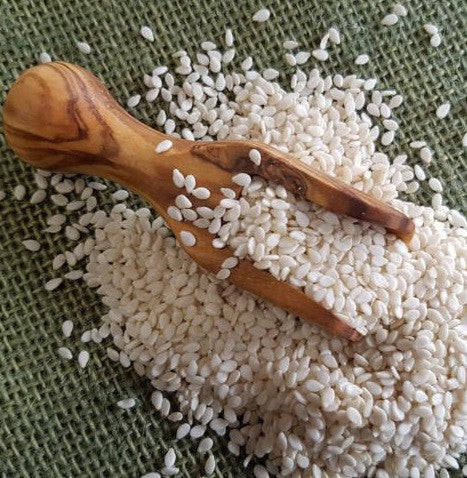White Sesame Seed:
What is it?
Sesame seeds are admired all around the world for their slightly sweet, nutty flavor and aroma that is enhanced by toasting. In the Middle East, sesame seeds are ground into a paste called tahini and used in the savory dish, hummus and in sweet treats like halvah. In Asian cuisine, they are used in sushi rolls, stir-fries and salads, to name a few. And throughout Europe and America, sesame seeds are added to breads and other baked goods for a rustic, artisan touch and flavor. Sesame seeds are also highly valued for their high content of oil which contains essential fatty acids and is revered in some cultures for its healing properties.
What could it do for me?
Sesame seeds, an alkaline food, offer many nutritional benefits. They're an excellent source of zinc, manganese, magnesium, copper, calcium, iron, phosphorus, vitamin B1 and dietary fiber. Sesame seeds also contain lignans, called sesamin and sesamolin, which can help lower cholesterol and blood pressure.
What can I do with it?
Sesame seeds can be eaten whole, ground into sesame paste which is called Tahini or sprouted.
The whole seeds can also be used raw or roasted in muesli/granola, salads or baked goods.
The oil can be used in salads, smoothies etc and is exceptionally resistant to rancidity.
How do I store it ?
Sesame seed is best kept in an airtight container in your pantry or in the freezer where it will keep for many months.
